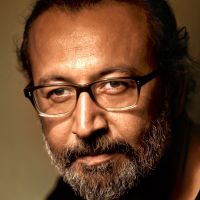Representatives from 30 non-governmental organizations in Ankara, Mersin, Konya, Adana, Hatay, Samsun, Karabuk, Sivas, Tarsus and Karadeniz Eregli attended the seminar.
The NGO representatives, who gathered at the training at Puis Hotel, discussed how they could position themselves in parallel with the increasing influence of the rights organizations in the world, and what they could do to become more effective and visible through the media.
At the end of the training, where the women NGO representatives were in majority, the participants agreed that the NGOs should have a more corporate structure, the relations among the NGOs should be improved and that NGOs should formulate communications strategies and take advantage of the media to be able to better express themselves to the public.
The seminar was made up of presentations on "The Notion of Rights Organizations, Examples from the World, Public Relations Practices," "Strategies and methods to be used by NGOs in establishing relations with the national and local media, strategies for drawing the media's attention on rights activism and rights violations, and ensuring follow-up stories," and "The Relations of Rights Organizations with their target audiences," and workshops on "Organizing press conferences, writing press releases."
NGO Project Advisor Fugen Ugur, Communications expert Ergun Gumrah from Leo PR, NGO expert Sinan Gokcen from the Helsinki Citizens Assembly and Erol Onderoglu, who is responsible for the BIA ² Media Monitoring Desk, made a presentation each at the seminar.
The training began with BIA Project Advisor Nadire Mater talking about their project goals and giving information about the efforts by BIA.
Ugur: "People have more trust in NGOs than in governments"
NGO Project Advisor Fugen Ugur made the first presentation on Saturday on "The Notion of Rights Organizations, Examples from the World and Advocating, Public Relations Practices."
Ugur made an outline of the description and notion of rights organizations and talked about the common strengths and problems of NGOs, their increasing influence globally, the criticisms they face with and what the NGOs can do in return.
Ugur said that rights organizations have become well-respected and trusted interlocutors of western governments and international institutions. "There is more trust in the NGOs than in the governments," said Ugur.
Ugur underlined that NGOs contribute in improving international norms and standards in the fields of human rights and, women's and children's rights. "Rights organizations have ensured that these norms and standards are accepted by the governments and that these norms and standards are included in international conventions," said Ugur. "They also monitor whether the standards accepted through conventions are being complied with."
Ugur said as the number of those listening to NGOs, appreciating them, accepting them as interlocutors and supporting them are increasing, there also are those who criticize them. She listed the following as the main points of criticism:
* The financial resources of NGOs are not transparent enough. Most get funds from western governments and are labelled as their "agents."
* Many large NGOs have turned into "companies." Although their biggest characteristic is that they are not-for-profit, there are some who engage in commercial activities with the aim of raising funds.
* Large NGOs have large, cumbersome bureaucratic structures. There is no democracy within the organization.
* They have taken shelter behind the armor of "nice and devoted people who work with good intentions," and they deem themselves immune.
* They are completely focused on their targets and principles. They don't think about the outcomes of their activities.
* They are serving - although not on purpose - the hegemony interests of western governments. This sometimes leads to the collapse of regimes and the formation of new ones that are pro-west.
* With the funds they get from large international companies, they help these companies to absolve themselves and increase their prestige.
Ugur said, in the face of these criticisms, the rights organizations must place importance on how they define and promote themselves and how they describe and explain their vision and mission, must engage in corporate identity studies, develop public relations/promotion and media relations strategies, and act professionally.
Gumrah: "Being in the media is just a vehicle, not the goal"
During the "Media Relations Workshop" on Saturday afternoon, communications expert Ergun Gumrah made the first presentation. Gumrah talked about the strategies and methods the rights organizations could use in their relations with the national and local media, in drawing the media's attention on rights activism and rights violations and to ensure follow-up stories. Gumrah underlined that being on the media is not the target but just a vehicle. He underlined that the rights organizations have to plan their communications processes in detail to be able to correctly convey their message correctly and to create an effect.
Gumrah said that the rights organizations draw their strength from being on the side of the rightful and the correct. Besides communications directed to the outside world, he talked about the importance of establishing transparency within the organizations, and the importance of efficiency towards the members.
Gumrah said each day hundreds of thousands of messages are created and hundreds of press statements are sent to news organizations. "It is important to differentiate yourselves in this complex communications environment," said Gumrah. "As rights organizations, you should spend more effort to find creative communications solutions. Otherwise, everything you do and everything you say will go directly to the trash can."
Everything you do to reach the target from the point you are at now make up your strategy," said Gumrah. He added that research, planning, implementation and evaluation are necessary for the activities to be successful.
Gumrah said the journalists working especially for the national media are indifferent to rights but added that nevertheless the rights organizations need them.
Gokcen: "NGOs should plan for the media "
NGO expert Sinan Gokcen from the Helsinki Citizens Assembly picked up from where Gumrah left and talked about the things the NGOs should pay attention to when organizing press conferences, preparing press statements, writing news and conducting interviewing.
He said the rights organizations, when using vehicles of communications, should pay attention to technic and methods and pick the most effective means.
"The most powerful thing that motivates the journalist is the news itself," said Gokcen and added that the rights organizations should regularly exchange information with the journalists and writers that are interested in their fields.
Gokcen said it is very important for rights organizations to plan so that they can correctly and effectively convey their messages. He added that despite all its negative practices, the media is still the most effective means to create public opinion and stressed that the rights organizations must learn to take advantage of this means.
Gokcen also added that the rights organizations should pay extra attention to newspapers that cover their activities.
After the presentation, Gokcen broke the participants into groups and gave them information on the seal hunting in Canada. He asked the participants to prepare press statements on the issue.
On the second day of the training, the participants presented the press statements, the press conference and the signature campaign that they prepared in groups.
The participants evaluated each others' work and evaluated their strengths and weaknesses.
One participant acted as an NGO representative while two others acted as journalists as the instructors talked about the points to be paid attention to during an interview.
After the workshop, Gumrah talked about the "Silent Shoes Campaign" by the Hope Foundation as an example of a successful project.
"You should take advantage of the Law to Acquire Information"
On Sunday afternoon, Erol Onderoglu, who is responsible for BIA² Media Monitoring Desk, talked about the things the the rights organizations should pay attention to when researching and preparing their reports.
Onderoglu gave examples of the reporting methods on various developments of the Reporters Without Frontiers (RSF) which he works for. He gave information on the stages of research and reporting.
Onderoglu pointed to the importance of gathering information in research and said the rights organizations should pay attention to certain things when interviewing victims and witnesses. He advised the use of a standard form in interviews, and talked about the importance of creating an archive and taking advantage of the Right to Access Information.
Onderoglu advised to always demand information from public institutions and gave information on the Law to Acquire Information, which went into effect on April 2004.
Onderoglu also talked about the language of reporting and underlined the importance of giving sources and differentiating between allegations and realities.
"Using allegations and witness accounts as evidence we acquired first hand would damage the trustworthiness of our organization and our report," said Onderoglu. "Positive or negative formal data and formal statements and reactions should also be in the report."
Onderoglu and Gokcen reminded the participants that despite all these, the law is a very important legal weapon and called on the representatives of rights organizations to take advantage of this right.
Criticisms and suggestions
At the end of the training, the participants conveyed their criticisms and suggestions.
All participants agreed that the training was very beneficial and said they would share the things they learned with their companies and try to implement them.
The main criticisms were that the training was too short, there was not enough practical exercises and that technical problems interrupted the training.
The participants also suggested that more attention is paid to the issues of women and children.
All representatives said they would like such trainings to continue. The seminar ended with Project Advisor Nadire Mater telling the participants about the bianet Web site. (KO/EO/EU/EA/YE)





